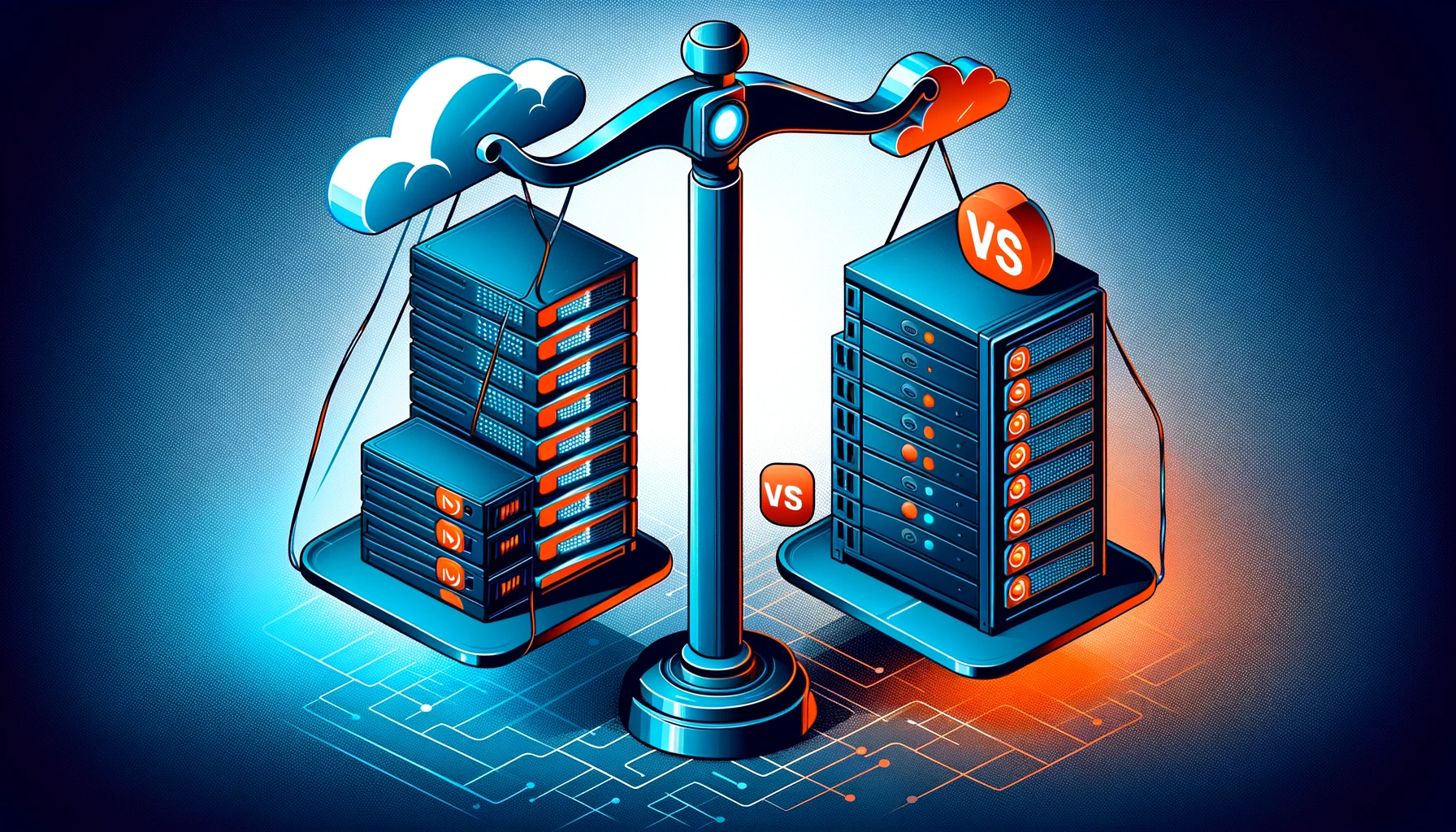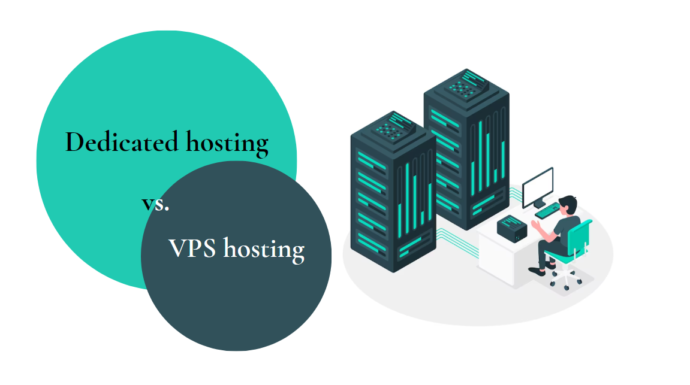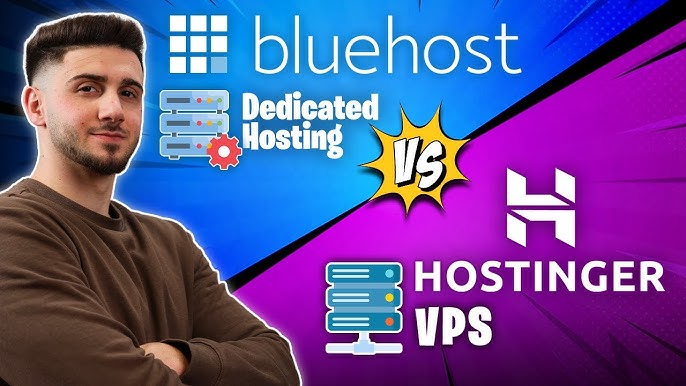Choosing between VPS and dedicated hosting can be challenging. Both have unique benefits.
In the world of web hosting, making the right choice is crucial. VPS (Virtual Private Server) hosting and dedicated hosting are popular options. They cater to different needs. Understanding these differences helps in making an informed decision. VPS hosting offers a balance between cost and performance.
It shares server resources among users. Dedicated hosting, on the other hand, provides exclusive server access. This means higher performance and security. But, it comes at a higher cost. This comparison will guide you. It will help you decide which hosting solution fits your needs best.

Credit: www.ukhost4u.com
What Is Vps Hosting?
VPS hosting is a popular choice among website owners. It offers many benefits and is often seen as a step up from shared hosting. Understanding VPS hosting can help you make an informed decision about your website’s needs.
Definition
VPS stands for Virtual Private Server. It is a type of hosting where a physical server is divided into multiple virtual servers. Each virtual server acts like a dedicated server. This means you get your own resources and more control over your hosting environment.
How It Works
In VPS hosting, a large physical server is split using virtualization technology. Each virtual server gets a portion of the physical server’s resources. These resources include CPU, RAM, and storage. This ensures that your website runs smoothly and efficiently.
Users on a VPS have root access to their server. This allows them to install software and make custom configurations. You get the flexibility of a dedicated server but at a lower cost.
VPS hosting is ideal for websites that need more power than shared hosting. It provides a balance between cost and performance, making it a popular choice for growing websites.
What Is Dedicated Hosting?
Dedicated hosting provides a server solely for one user. It offers full control and high performance, ideal for large websites. In comparing VPS vs. dedicated hosting, dedicated servers suit those needing robust resources and complete customization.
Dedicated hosting offers exclusive use of an entire server to one client. This means the client has full control over the server. It provides maximum performance and security.Definition
Dedicated hosting allocates a whole server to a single user. This server is not shared with anyone else. All resources are available only to you. This makes it very powerful and reliable.How It Works
The hosting provider rents out an entire server to you. You get full access to all the resources. You can install any software and configure it as needed. Maintenance and updates are often handled by the provider. This ensures the server runs smoothly. Dedicated hosting is ideal for large websites. It supports high traffic and needs robust security. You have complete control over the server. This allows for custom configurations and settings. It is a perfect choice for businesses with specific needs. “`Performance Comparison
When choosing between VPS and dedicated hosting, one of the most critical factors to consider is performance. Let’s delve into a performance comparison to help you decide which hosting solution best meets your needs. We will look at two key aspects: speed and reliability, and resource allocation.
Speed And Reliability
Speed and reliability can make or break your website’s success. Visitors expect fast load times and minimal downtime. Here’s how VPS and dedicated hosting stack up:
- VPS Hosting: VPS (Virtual Private Server) hosting provides a balanced mix of performance and cost-efficiency. Since you share a server with other users, your website may experience slower speeds during peak times. However, modern VPS solutions use advanced technology to minimize these effects, ensuring acceptable performance.
- Dedicated Hosting: Dedicated hosting offers unparalleled speed and reliability because you have the entire server to yourself. There’s no competition for resources, leading to consistently fast load times and virtually zero downtime. It’s the gold standard for businesses that can’t afford to compromise on performance.
Think of it this way: VPS is like sharing a taxi with others – it’s economical but sometimes slower. Dedicated hosting is like having your own private car – it’s faster and more reliable but comes at a higher cost.
Resource Allocation
Resource allocation determines how much power your website can harness from the server. Let’s compare how VPS and dedicated hosting manage resources:
- VPS Hosting: With VPS, resources such as CPU, RAM, and storage are divided among multiple users. Each VPS gets a slice of the server’s resources. This setup is flexible, allowing you to upgrade resources as needed. However, during high traffic, your website might face resource contention.
- Dedicated Hosting: Dedicated hosting means you have all the server’s resources at your disposal. It’s like owning a house where you decide how to use the space. This ensures maximum performance, especially for resource-intensive applications. You won’t face any limitations imposed by other users.
In essence, VPS hosting provides a good mix of resource allocation for growing businesses. Dedicated hosting, on the other hand, is the powerhouse option for those requiring top-tier performance and complete control.
Performance-wise, if speed, reliability, and resource allocation are your top priorities, dedicated hosting is the way to go. However, if you’re looking for a balance between cost and performance, VPS hosting might just be your perfect match. So, what will it be – the shared taxi or the private car?
Cost Considerations
Choosing between VPS and dedicated hosting often hinges on cost. Understanding the financial implications can help you make an informed decision. This section will break down the cost considerations into two main categories: initial investment and long-term costs.
Initial Investment
VPS hosting usually requires a lower initial investment. It shares server resources, making it more affordable for small businesses. Dedicated hosting, on the other hand, demands a higher upfront cost. This is because you get an entire server exclusively for your use. The initial investment varies based on the server specifications and hosting provider.
Long-term Costs
Long-term costs can differ significantly between VPS and dedicated hosting. VPS hosting often has lower monthly fees. This is due to the shared nature of the server. Over time, these savings can add up. Dedicated hosting has higher monthly costs. You pay for the entire server, including maintenance and upgrades. The long-term costs may be justified if you need high performance and control.
Scalability
Scalability is a crucial factor in choosing between VPS and dedicated hosting. It determines how well your hosting solution can grow with your website. A scalable hosting plan allows for easy upgrades as your traffic and resource needs increase. Let’s explore the scalability of both VPS and dedicated hosting.
Vps Scalability
VPS hosting offers excellent scalability. You can easily adjust resources like CPU, RAM, and storage. This means your website can grow without major disruptions. If your traffic spikes, you can quickly increase resources. This flexibility is ideal for growing businesses. The cost is also manageable since you only pay for what you need.
Dedicated Server Scalability
Dedicated servers offer robust scalability but with some limitations. Upgrading a dedicated server often means adding more hardware. This can be more complex and time-consuming than VPS upgrades. Dedicated servers can handle large-scale websites with high traffic. But they require more planning and investment for scalability.

Credit: www.trustindex.io
Security Features
When it comes to choosing between VPS and Dedicated Hosting, security is a critical factor to consider. Both hosting options offer different levels of security features that can impact your website’s safety. Let’s dive into the specifics of VPS security and Dedicated server security to help you make an informed decision.
Vps Security
Virtual Private Servers (VPS) offer a unique blend of security and affordability. Since your server is virtually isolated from others, you get a dedicated portion of a physical server’s resources. Here are some key security features of VPS:
- Isolation: Each VPS runs in its own environment, separate from other users on the same physical server. This isolation helps prevent security breaches from affecting your site.
- Customizable security settings: With a VPS, you have the freedom to configure your security settings to suit your specific needs. This includes installing firewalls, antivirus software, and other security tools.
- Regular updates: Most VPS providers offer regular updates and patches to keep your server secure from vulnerabilities.
However, it’s important to note that while VPS provides good security, it’s not entirely foolproof. Shared physical resources can still pose risks, albeit minimal.
Dedicated Server Security
Dedicated servers offer the highest level of security because you have the entire server to yourself. This exclusivity comes with several security advantages:
- Complete control: With a dedicated server, you have full control over the server’s security configurations. You can implement custom security policies, install advanced security software, and monitor the server closely.
- Enhanced physical security: Since the server is not shared with anyone else, physical access is limited to you and your hosting provider. This reduces the risk of unauthorized access.
- Dedicated resources: Unlike VPS, a dedicated server does not share resources with other users. This isolation minimizes the risk of performance issues and security vulnerabilities caused by other users.
While dedicated servers offer superior security, they come at a higher cost. But if security is your top priority, the investment can be well worth it.
In conclusion, both VPS and Dedicated Hosting have their own security features. VPS provides a good balance of security and cost-effectiveness, making it suitable for many users. On the other hand, dedicated servers offer unparalleled security and control, ideal for websites requiring top-tier protection. Consider your specific needs and budget to choose the best option for you.
Use Cases
Choosing between VPS and dedicated hosting can be a challenging task. Understanding the specific use cases for each option can help make the decision easier. Each type of hosting has its own advantages and is suitable for different needs. Below, we will explore the scenarios where VPS or dedicated hosting would be the better choice.
When To Choose Vps
VPS hosting is ideal for small to medium-sized businesses. It offers a balance between cost and performance. If you have a website that expects moderate traffic, VPS can handle it well. It provides more control than shared hosting but at a lower cost than dedicated hosting.
VPS is also suitable for developers. It allows them to test and deploy applications in a controlled environment. Startups often choose VPS hosting as it is scalable. You can upgrade resources as your business grows.
Another use case is for e-commerce sites. VPS provides the necessary security features. It helps in protecting customer data and maintaining privacy. Overall, VPS is a flexible and affordable option for many use cases.
When To Choose Dedicated
Dedicated hosting is the best choice for large businesses. It offers the highest level of performance and control. If your website receives heavy traffic, dedicated hosting ensures optimal performance. It provides all the server resources to a single user, ensuring no sharing of resources.
For websites requiring high security, dedicated hosting is essential. Banks and financial institutions often use dedicated servers. They need to protect sensitive information from potential breaches.
Another scenario is for resource-intensive applications. Dedicated hosting supports high computational power. It is also suitable for websites with large databases. If you need custom server configurations, dedicated hosting allows complete customization. This makes it perfect for complex applications and large-scale websites.

Credit: www.linkedin.com
Frequently Asked Questions
Which Is Better, Vps Or Dedicated Server?
A dedicated server offers more control and better performance. VPS is cost-effective and suitable for smaller businesses. Choose based on your needs.
Is Vps Better Than Web Hosting?
VPS offers more control, customization, and resources than shared web hosting. Ideal for growing websites needing higher performance.
Is Vps Better Than Shared Hosting?
Yes, VPS is better than shared hosting. VPS offers more control, better performance, and enhanced security. Shared hosting is cheaper but less reliable.
What Are The Disadvantages Of Vps Hosting?
VPS hosting can be expensive. It requires technical knowledge for management. Limited resources compared to dedicated servers. Potential for performance issues if not configured correctly.
Conclusion
Choosing between VPS and dedicated hosting depends on your needs. VPS hosting offers cost-effective flexibility. Dedicated hosting provides unmatched power and control. Consider your budget and technical requirements. VPS is great for growing businesses. Dedicated hosting suits large websites with high traffic.
Think about your future growth. Make an informed decision. Your choice impacts your online success.

